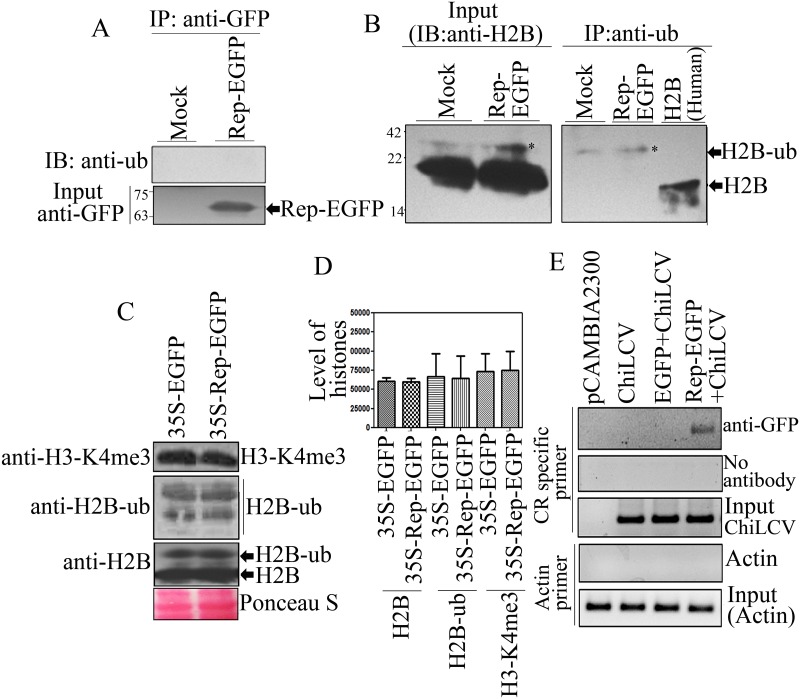Fig 9. Rep protein neither gets ubiquitinated nor influences global histone modifications.
(A) Detection of Rep-EGFP ubiquitinationin vivo. Immunoprecipitation was carried out from the total nuclear proteins using anti-GFP specific antibody at 7 dpi followed by immunoblotting with an anti-ubiquitin specific-antibody. Immunoblotting with anti-GFP specific antibody serves as input. (B) In vivo ubiquitination assay of H2B. Immunoprecipitation of ubiquitinated H2B using anti-ubiquitin specific antibody and immunoblotting was carried out with anti-H2B specific antibody. Immunoblotting of total nuclear proteins with H2B served as input control whereas human H2B served as control of unmodified H2B. (C) The effect of Rep protein on the total cellular histone modifications. Immunoblotting was performed using anti-H2B, anti-H2B-ub, and anti-H3-K4me3 specific antibodies from the total histone-enriched nuclear proteins isolated from EGFP-, and Rep-EGFP-infiltrated leaves. (D) Quantitative graphical representation of total cellular histone modifications. (E) Rep protein binds to ChiLCV DNA unlike host DNA. ChIP-PCR assays were carried out using the anti-GFP specific antibody and viral promoter specific primers. pCAMBIA2300, Rep-EGFP, EGFP with ChiLCV, and Rep-EGFP with ChiLCV-infiltrated leaves were subjected to ChIP-PCR analysis. The sample processed without antibody was considered as a control. Actin is considered as negative control.

